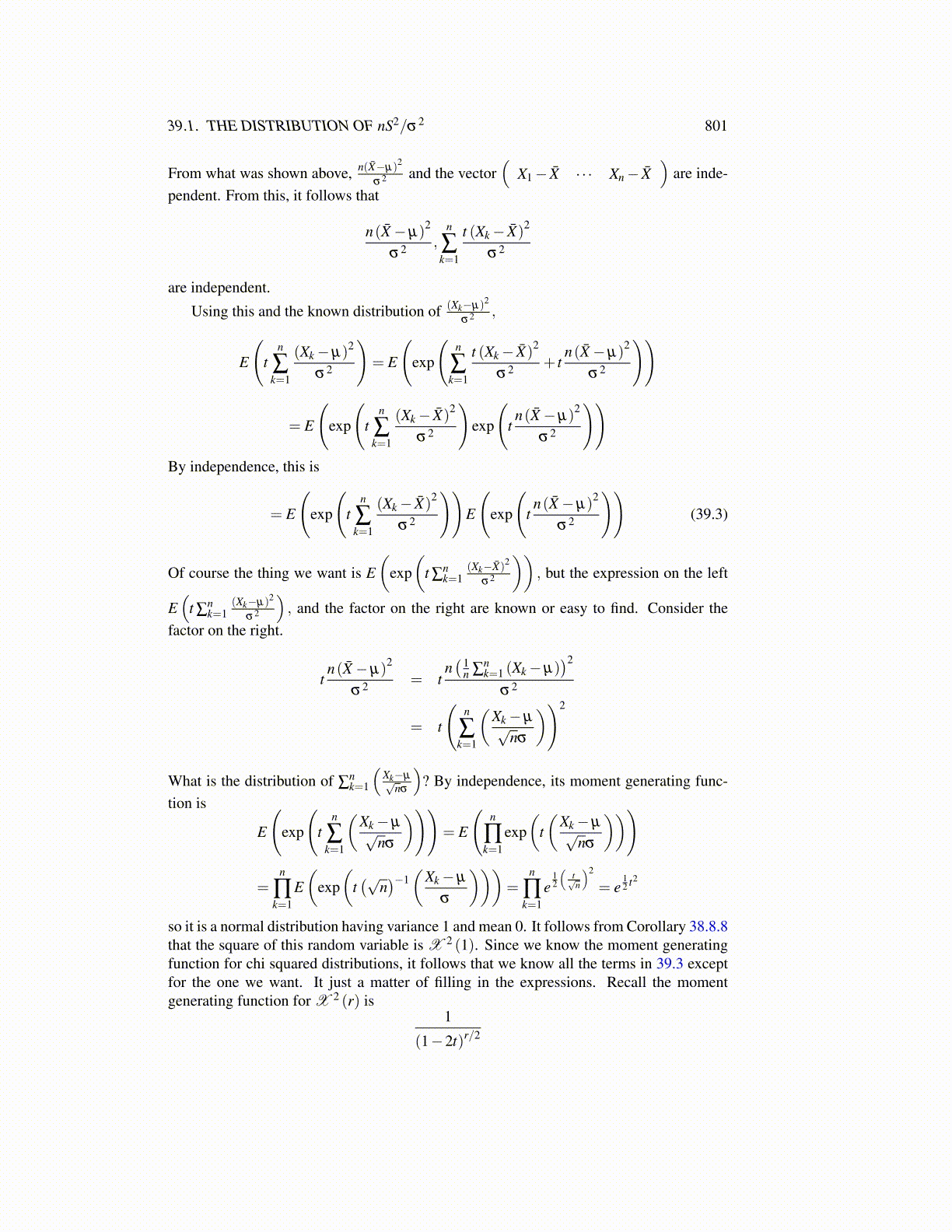
39.1. THE DISTRIBUTION OF nS2/σ2 801
From what was shown above, n(X̄−µ)2
σ2 and the vector(
X1− X̄ · · · Xn− X̄)
are inde-pendent. From this, it follows that
n(X̄−µ)2
σ2 ,n
∑k=1
t (Xk− X̄)2
σ2
are independent.
Using this and the known distribution of (Xk−µ)2
σ2 ,
E
(t
n
∑k=1
(Xk−µ)2
σ2
)= E
(exp
(n
∑k=1
t (Xk− X̄)2
σ2 + tn(X̄−µ)
2
σ2
))
= E
(exp
(t
n
∑k=1
(Xk− X̄)2
σ2
)exp
(tn(X̄−µ)
2
σ2
))By independence, this is
= E
(exp
(t
n
∑k=1
(Xk− X̄)2
σ2
))E
(exp
(tn(X̄−µ)
2
σ2
))(39.3)
Of course the thing we want is E(
exp(
t ∑nk=1
(Xk−X̄)2
σ2
)), but the expression on the left
E(
t ∑nk=1
(Xk−µ)2
σ2
), and the factor on the right are known or easy to find. Consider the
factor on the right.
tn(X̄−µ)
2
σ2 = tn( 1
n ∑nk=1 (Xk−µ)
)2
σ2
= t
(n
∑k=1
(Xk−µ√
nσ
))2
What is the distribution of ∑nk=1
(Xk−µ√
nσ
)? By independence, its moment generating func-
tion is
E
(exp
(t
n
∑k=1
(Xk−µ√
nσ
)))= E
(n
∏k=1
exp(
t(
Xk−µ√nσ
)))
=n
∏k=1
E(
exp(
t(√
n)−1(
Xk−µ
σ
)))=
n
∏k=1
e12
(t√n
)2
= e12 t2
so it is a normal distribution having variance 1 and mean 0. It follows from Corollary 38.8.8that the square of this random variable is X 2 (1). Since we know the moment generatingfunction for chi squared distributions, it follows that we know all the terms in 39.3 exceptfor the one we want. It just a matter of filling in the expressions. Recall the momentgenerating function for X 2 (r) is
1
(1−2t)r/2